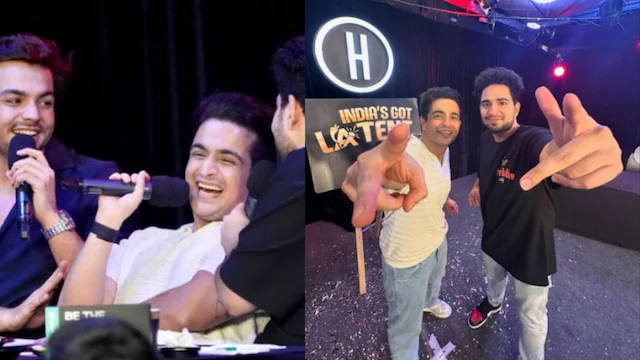Newsmatro
India’s Got Latent Controversy: Samay Raina’s Statement and the Ongoing Investigation

The controversy surrounding Samay Raina’s YouTube show, India’s Got Latent, has made headlines recently, bringing attention to the rising responsibility of content creators in India’s online space. With the investigation gaining momentum, Samay Raina and guest Ranveer Allahbadia, better known as BeerBiceps, have become key figures in this legal tussle. In this blog, we will delve into the details of the incident, Samay Raina’s response, and what this means for content creators in India.
The India’s Got Latent Controversy: India’s Got Latent gained significant attention after controversial remarks made by guest Ranveer Allahbadia. The comments sparked outrage and led to multiple complaints being filed against the show and its hosts. Amidst the growing tension, Samay Raina, the comedian behind the show, made the decision to delete all previous episodes of India’s Got Latent from his YouTube channel.
Samay Raina expressed regret over the comments made by Allahbadia, clarifying that his intention with the show had always been to make people laugh and entertain, never to offend anyone. However, the controversy spiraled into legal action, leading to an official investigation by the Mumbai police.
Mumbai Police Investigation: The investigation into the controversial remarks made on India’s Got Latent is now being handled by the Mumbai police. According to reports, Ranveer Allahbadia’s phone has been switched off, making it difficult for the authorities to contact him for questioning. On the other hand, Samay Raina has been cooperative, but due to his current stay in the United States, he has been granted time until March 10 to record his statement. This extension was given at the request of Raina’s lawyer, citing the comedian’s absence from the country.
The case is currently under scrutiny, with police investigating the nature of the comments and determining whether they violate any laws. The outcome of this case could set a precedent for how online content creators in India will be held accountable for controversial statements in the future.
Samay Raina’s Stand and Public Response: In response to the growing controversy, Samay Raina took to his social media to express his stance on the matter. He acknowledged the overwhelming nature of the situation but emphasized that he has always wanted to create a space for humor and fun. Raina reassured his audience that he would fully cooperate with authorities and is open to addressing any concerns raised by the investigation.
His decision to take down the controversial episodes of India’s Got Latent was a move to distance himself from the negative publicity, reflecting his intent to avoid further legal complications. Raina also made it clear that he holds no ill will toward those who were offended and that he respects the process of the law.
The Growing Responsibility of Content Creators in India: This controversy brings to light an important conversation about the responsibility of content creators in India. As online platforms continue to grow, so does the influence they hold over their audiences. Content creators are now expected to maintain a balance between entertainment and sensitivity, avoiding comments or jokes that may be considered offensive or harmful to certain communities.
India’s growing digital ecosystem has raised questions about what constitutes freedom of expression and where the line should be drawn. With platforms like YouTube, Instagram, and Twitter providing creators a massive audience, the power to influence is undeniable. However, it also brings with it the need for more thoughtful and responsible content creation.
What This Means for Content Creators in India: The India’s Got Latent case serves as a crucial reminder to content creators across India that they must exercise caution in their comedic and conversational content. While comedy often pushes boundaries, it is essential to recognize when it crosses the line into something harmful or offensive. The law is catching up with digital content, and creators must be mindful of legal repercussions.
For those in the entertainment industry, this serves as a reminder that their reach comes with responsibility. This case could potentially influence future regulations for digital content in India, creating a framework that ensures freedom of expression while protecting individuals and communities from harmful content.
Conclusion: As the investigation continues, Samay Raina’s time in the spotlight serves as a lesson for content creators in India about the fine line between humor and offense. The India’s Got Latent controversy has sparked conversations on the responsibility of digital influencers and the role of the law in regulating online content.
Samay Raina’s cooperation with the authorities and his public statements indicate that he is taking the matter seriously. Whether this controversy will lead to any significant legal changes remains to be seen, but it is clear that digital content creators must tread carefully when dealing with sensitive topics. The outcome of this case could potentially shape the future of online content creation in India.